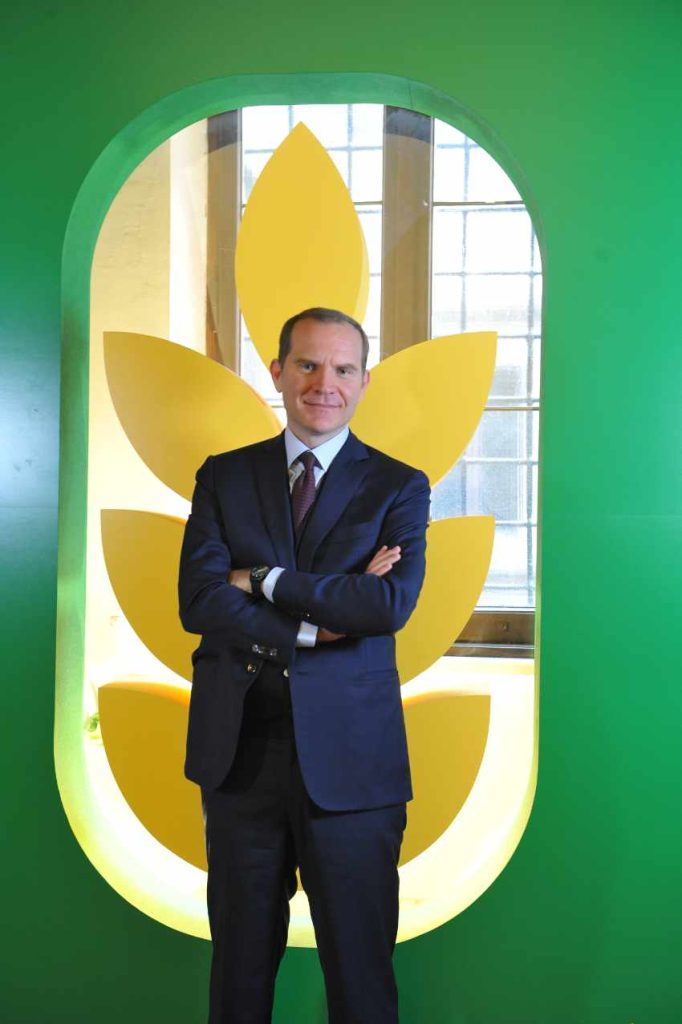Confagricoltura is the first organization for the protection and representation of Italian agricultural businesses, in Italy and in Europe. It works for the development of farming businesses, as well as the primary sector in general, for the good of the community, the economy, the environment, and the territory. It favors access to business innovation, to the sustainability of agricultural practices, as well as to company competition on domestic and international markets.
Interview with Massimiliano Giansanti, President of Confagricoltura.
Easy Engineering: What are the main areas of activity of the organization?
Massimiliano Giansanti: Confagricoltura is committed to safeguarding farmers’ income; to the evolution and simplification of field regulations, to the overcoming of structural gaps as well as competitive limitations; to free access to the marketplace; tor the reorganization of the productive system in view of aggregation and networking, for the growth of inter-sector supply chains, for the protection of “made in Italy” products.
At the base of this union action there is a system of values – defined by Confagricoltura Ethical Code – which must be adopted and respected by the partnering businesses, as they represent the Confederation’s identity.
The added value of Confagricoltura is its vast professional network, with its shared strategy that provides the businesses with protection, field information, as well as innovative and quality services.
Confagricoltura is present throughout the country, through Regional Federations (in every region), provincial Unions (in all provinces), Area offices and Municipal Delegations (over 2.200 offices), as well as through Trade Federations (at the head of regional and provincial trade unions) and Product Federations (which frame the corresponding regional and provincial product sectors).
Confagricoltura also has an office in Brussels. National headquarters are in Rome, in the historical Palazzo della Valle.
E.E: How many entrepreneurs do you represent?
M.G: This is our representation on national level:
- 24 product sectors, which make up the corresponding regional and provincial sectors;
- 165,300 farming businesses with hired labour;
- 242,610 farming businesses with direct farming – self-employed workers;
- 300,000 contractors, land maintenance, sharecroppers, owners, granters;
- 2/3 of the overall sector companies;
- 41 million workdays (over 24 million of which via Union proxy);
- 520,000 hired workers;
- Over 45% of gross sellable production;
- 47 billion euro of plv agroforestry;
- 27 billion euro of added value.
- 1/3 of the UAA (SAU) (Usable Agricultural Area)
E.E: What services do you offer to your associated companies?
M.G: Confagricoltura operates in all the main institutional offices, both at a national and an international level, directly connected to agriculture or pertinent to the field, such as CNEL, COPA – The Committee of European Farming Organizations, GEOPA – European Coordination of employer organizations, and CES – European Social and Economic Committee.
It is an active participant in consultations between social partners and the Government.
National and regional collective contracts for workers, employees, agricultural managers, as well as the national collective work contracts for employees of agricultural companies, have always been stipulated respectively in Confagricoltura’s national and provincial offices.

E.E: What can you tell us about market trends?
M.G: Italian agricultural companies operate in a global market; therefore the integration of agricultural and agro-energy production is an efficient model that puts competitiveness back at the centre while protecting the environment.
Agricultural companies produce energy, decarbonize, cultivate while reducing their environmental footprint: all this is part of the figure of today’s farmer.
Italy’s agricultural excellences are countless, all supply chains of great value. However, we need support to bring down costs. In fact, the FAO price index shows a steady decline in prices of agricultural products from February 2023 to February 2024 without ever registering a reversal except for April 2023. This is why renewables energies are essential.
E.E: What are the most innovative products/services marketed?
M.G: There are so many innovative products on agricultural market, however one in particular was highly promoted by Confagricoltura in our Country, bringing to a specifical Government legislation: New Genomic Techniques.
Through a precise and non-invasive genetic modification, the application of these techniques will make it possible to face many of the current threats to national production capacity: from fungal diseases resulting from excessive rainfall and floods to drought and salinity of soil and river waters.
Confagricoltura is pushing to reach even a European legislation on this matter too.
E.E: What estimations do you have for the beginning of 2024?
M.G: Infrastructures, both physical and digital, need to be implemented. Integrating energy production with agricultural production helps us to create sustainable districts in our territories. Total circularity and zero impact: this is the agricultural model of the future, we already have everything at home, but politicians have to sustain this approach.

